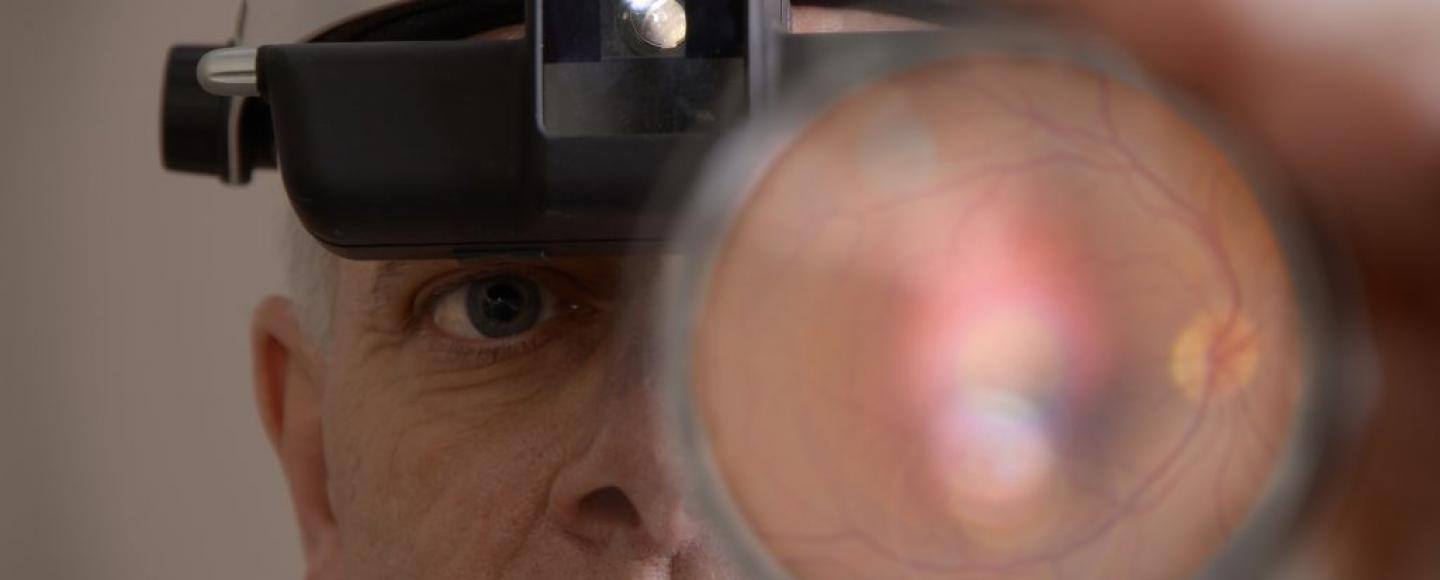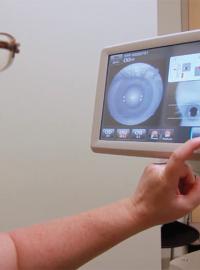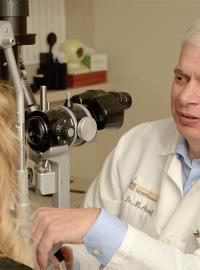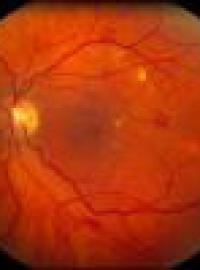Table of ContentsClose

The patient was an artist, so while he waited for his scheduled appointment in the ophthalmology clinic he sketched the faces of the other patients in the room. When the time came for his exam, he shared his drawing with the doctor, a resident physician at the University Hospital of Utrecht, Netherlands.
“He had diabetes, and by the time he came in for an appointment there was permanent damage. He had diabetic macular edema,” says Michael Abràmoff, MD, PhD, the Robert C. Watzke Professor of Ophthalmology and Visual Sciences with University of Iowa Health Care, remembering that patient 21 years ago.
Diabetic macular edema is a consequence of diabetic retinopathy, specifically swelling of the macula that causes blurry vision. Early detection and treatment of diabetic retinopathy can reduce the risk of blindness by 95 percent, but because the condition lacks early symptoms, patients need regular exams by a retinal specialist.
Appointments in the Utrecht ophthalmology clinic were scheduled six months out in 1997. Of the patients with diabetes who came to the clinic, many had nothing wrong after screening exams. Abràmoff was frustrated that he wasn’t seeing the patients who needed help, nor seeing patients with diabetic retinopathy soon enough for effective treatment.
“I had a software background, and I thought, ‘We need to use computers to make this better,’” he says.

Ophthalmologist with computer science expertise
For the last 20 years, Michael Abràmoff has studied how artificial intelligence (AI) can be used to detect disease in medical images—specifically how to use “smart cameras” enhanced with AI algorithms to detect signs of diabetic retinopathy.

AI in health care
More than 24,000 people in the United States lose their sight to diabetic retinopathy each year. It is the leading cause of vision loss in adults and one of the most severe complications for the 30.3 million Americans with diabetes. Yet less than 50 percent of patients with diabetes schedule regular exams with an eye-care specialist, and in a rural state like Iowa, a qualified vision specialist may be hours away

AI not replacing doctor
Two months after FDA authorization, IDx-DR made its debut at the Diabetes and Endocrinology Center at UI Health Care–Iowa River Landing in Coralville, Iowa. IDx is building other AI-based diagnostic algorithms for the detection of macular degeneration, glaucoma, Alzheimer’s disease, cardiovascular disease, and stroke risk.

Running IDx through its trials
In 2017, IDx funded a clinical trial that compared the performance of IDx-DR to the gold standard diagnostic for diabetic retinopathy. It was the first study to prospectively assess the safety of an autonomous AI system in patient care.

About diabetic retinopathy
Diabetic retinopathy is the most prevalent cause of blindness and vision loss in people under age 75.
